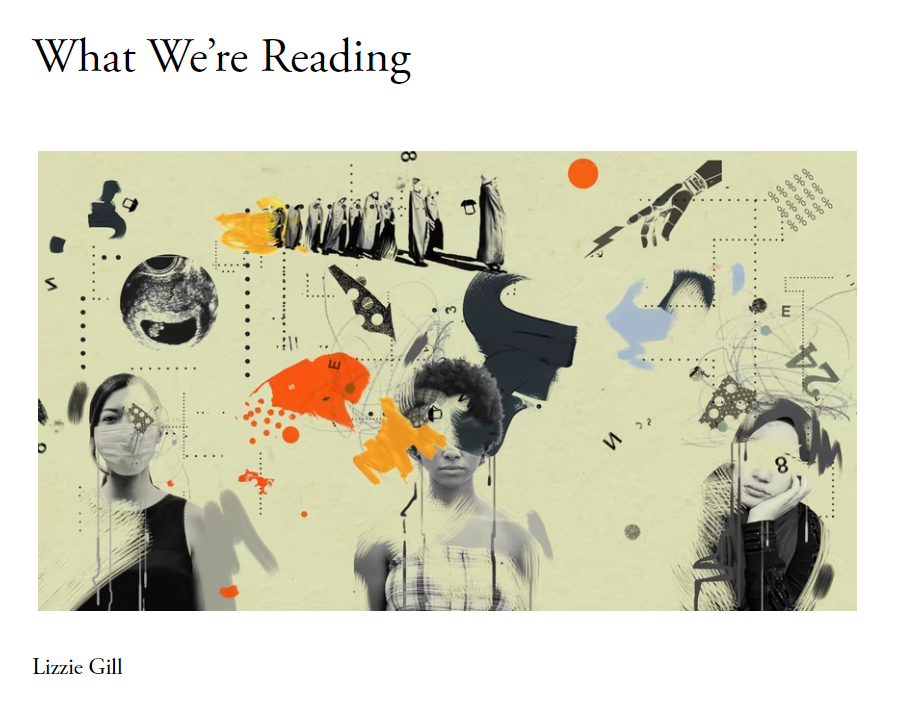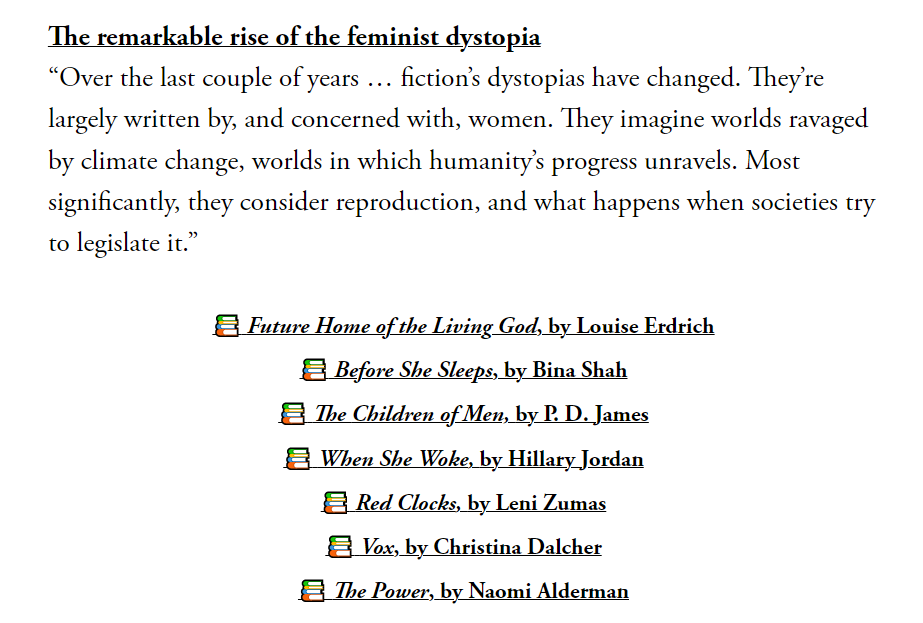Literature for a Post-Roe World (Cross posted from The Lounge)
Fiction and poetry can help us grapple with our fears for the future—and remind us what we stand to lose in the present: Your weekly guide to the best in books
https://www.theatlantic.com/books/archive/2022/07/books-briefing-margaret-atwood-louise-erdrich/661432/

Dystopian novels, even when their plots seem fantastical, simulate a deeply human experience: the feeling of being at the mercy of your circumstances, your personal control slipping away. When the Supreme Court struck down
Roe v. Wade on Friday, I itched to dive into some speculative fiction, to find my grief and anger reflected in a setting both horrifying and familiar.
Margaret Atwood exemplified dystopia with her 1985 book,
The Handmaid’s Tale, in which a theocratic dictatorship bars women from reading, writing, or controlling their own reproduction. But more recent novels have reflected similar fears. In 2018, our staff writer Sophie Gilbert
noted the rise of “feminist dystopia” set in worlds where reproductive rights are demolished. In Bina Shah’s
Before She Sleeps, for instance, women who have survived a deadly strain of HPV are forced to have children with multiple husbands; in Louise Erdrich’s
Future Home of the Living God, pregnant women are taken into government custody.
Through the distance of an imagined world, we can grapple with very real anxieties. Recently, though, the gap between dystopian plots and actual life feels like it’s shrinking. When Atwood wrote
The Handmaid’s Tale, she worried that it was too far-fetched—but when Justice Samuel Alito’s draft opinion in
Dobbs v. Jackson Women’s Health Organization surfaced, she felt like her work was coming true. And according to Mary Ziegler, the author of
After Roe,
Dobbs could signal that the Supreme Court’s guardrails are off—that no losses are unimaginable. “No one should get used to their rights,” she wrote. “Rights can vanish.”
But works of fiction and poetry don’t just remind us what we can lose. They also remind us of all we have to lose—why the stakes feel so high. In “
Considering Roe v. Wade, Letters to the Black Body,” the poet Tiana Clark
considers America’s long history of violent control over Black women and their bodies. But she also celebrates her own. “Dear Black Body That I Adore,” she writes. “Dear Black Body / That I Now Listen to Shimmering with Acute Tenderness.” Literature helps us salvage some tenderness, if only by reminding us that we’re not alone in our fear. The poet Dana Levin captured this truth when she compiled a cento—a poem consisting of lines from other poets, in chorus. It begins: “I hold my grief like two limp tulips.” But it becomes a call for care and collective action.“What hurts? / What hurts? / How can I help from here?”
snip


snip


